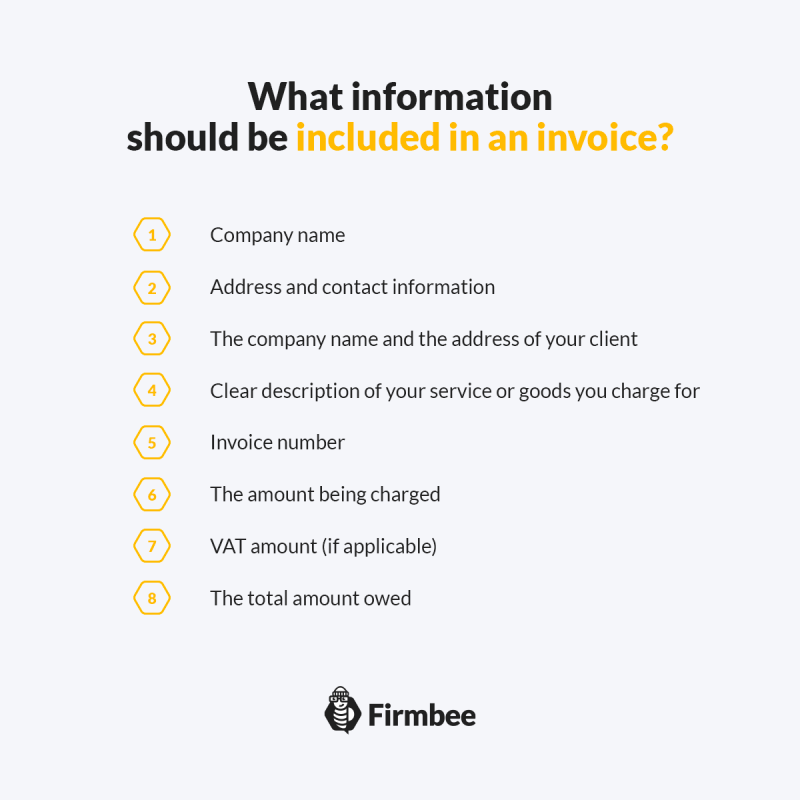Is an invoice a legal document? At first glance, it might seem that the answer to this question is obvious. Invoices must contain certain elements required by law. But that doesn’t mean they are legal documents. If that were the case, a dishonest person could issue an invoice for any amount and then demand the client to pay it. An invoice by itself is not a legal document. Only in combination with other documents can an invoice have legal force. What are those documents? And how to make an invoice a legally binding document? You’ll find that out and more in this article!
Is an invoice a legal document? – table of content:
- Is an invoice a legal document?
- What makes invoices legal?
- What legal information can you include on an invoice?
- What documents will make an invoice binding?
- How to protect yourself against a dishonest buyer?
- Recipient’s signature – a simple way to confirm the transaction
Is an invoice a legal document?
At first glance, it might seem that the answer to the question: “Is an invoice a legal document?” seems obvious. Invoices must contain certain elements required by law. But that doesn’t mean they are legal documents. If that were the case, a dishonest person could issue an invoice for any amount and then demand the client to pay it.
An invoice by itself is not a legal document. Only in combination with other documents can an invoice have legal force.
What are those documents? And how to make an invoice a legally binding document? You’ll find that out and more in this article!
What makes invoices legal?
An invoice is an accounting document. But is an invoice a legal document? It contains important information such as date and method of payment, type and value of goods and services sold as well as amounts of taxes due. An invoice also documents an economic event involving the delivery of goods or services, but it doesn’t indisputably prove the existence of a contract between the seller and the buyer.
Is an invoice a legal document? Let’s try to answer this question. If invoices alone were legal documents then dishonest companies could issue false invoices and based on them demand payment for undelivered goods or services. Therefore, in addition to the invoice you must have other documents to confirm that the economic event indicated in the invoice took place.
What legal information can you include in an invoice?

Although an invoice alone is not a legal document, you can include certain legal information that will be binding for your customer under certain conditions. One of the most common legal information on an invoice is the payment deadline. However, for this to be legally binding you need to have proof that your customer has accepted the payment date. If the customer does not pay on time you will charge them interest.
You may also encounter a clause saying that until the customer pays the full amount indicated in the invoice, the goods remain the property of the seller. Sometimes there is a note in the invoice saying that the invoice is at the same time demand for payment of the resulting amount. It could also include information that non-payment will result in placing the client in a public debtors’ register or referring the case forward to a debt collection agency.
The invoice may also contain information about the length of the guarantee, the method of a complaint or how to return the goods. However, this information is one-sided. In some cases, confirmation from the other party, i.e., the buyer, is required to have legal force. How then to make an invoice binding?
What documents will make an invoice binding?
A contract or an order confirmed by the customer are such documents. In the contract, the two parties to the transaction agree on the conditions of delivering the goods or services. It may include the method and date of payment, the price for goods and services, delivery dates, and many other things that are important to the parties to the contract.
Some of these arrangements, such as payment terms and product prices, for example, will be repeated in the invoice. In the case of a contract, you’ll have proof that your contractor has accepted the terms presented.
Lawyers have a saying that people make contracts for the bad times. What does that mean? As long as all is well and your customers pay the invoices they receive, it seems like a contract isn’t necessary. But if your contractor stops meeting previous agreements, then in that case a contract will prove invaluable. It will give you direct evidence in your hand that has the force of law. Such a contract does not necessarily have to be created by a lawyer. Of course, if you opt for the services of a lawyer, then such a contract will certainly be more refined, but it will cost you more.
Fortunately, you can create simple contracts yourself. Interestingly, the agreement does not have to be on paper. A contract can be an agreement sent by e-mail, SMS, or instant messaging. Such messages have the force of law as well as a confirmation that your client has agreed to the conditions, which later find their way onto your invoice.
The same role has the order accepted by the customer. On this basis, you can issue an invoice, which together with the order, becomes a set of legal documents. The order does not have to be in the paper form either. It can be an e-mail, SMS, or a message from a communicator. If you run an online store, an order may also be a filled-in form available on your store’s website.
How to protect against dishonest buyers?
A customer could order goods from you and then deny doing it. The fact that you issued an invoice to such a person will have no legal force. Until both parties accept the invoice, it is not legally binding. That is why it is so important to have an order confirmation from the person ordering the goods or services. Only with a signed contract or confirmed order, you can demand payment for an invoice issued following the contract or order.
Recipient’s signature – a simple way to confirm transactions
One of the simplest ways to confirm the transaction is the buyer’s signature in the invoice. By putting down a signature the customer accepts the invoice. At this point, it becomes legally binding. However, the invoice is not always on paper. So how can you get confirmation of acceptance of an invoice sent electronically? In that case, all you need is a short email message in which the customers confirm they accept all the details the invoice contains. This will give you proof that your customer has agreed to the terms of sale stated in the invoice.
Use our free invoicing app to create all types of invoices with custom currencies, tax rates and discounts.
If you like our content, join our busy bees community on Facebook, Twitter, LinkedIn, Instagram, YouTube.
Author: Andy Nichols
A problem solver with 5 different degrees and endless reserves of motivation. This makes him a perfect Business Owner & Manager. When searching for employees and partners, openness and curiosity of the world are qualities he values the most.


















